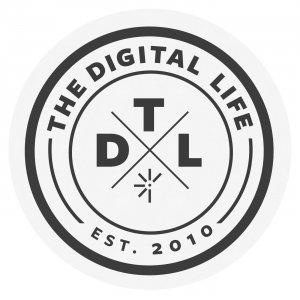The Digital Life

Digital Healthcare Services in 2016 (and Beyond)
Jon: Welcome to episode 138 of The Digital Life, a show about our adventures in the world of design and technology. I’m your host, Jon Follett, and with me are director Juhan Sonin and designer Beth Herlin, both from Involution Studios. Welcome to the show guys.
Beth: Thanks, Jon. It’s great to be here.
Juhan: Likewise.
Jon: All right, so for our podcast topic this week, we’re going to chat a little bit about digital healthcare services in 2016 and beyond. If you like what we have to say on this topic, we encourage you to check out our company piece on MobiHealthNews. That’s M-O-B-I-H-E-A-L-T-H-N-E-W-S.com, so check out our piece there. It’s getting lots of shares, so people seem to be responding to it. Let’s dive in now to digital healthcare services in 2016 and beyond.
We’re going to start off with medication adherence getting a boost from sensor tech. We all know that everything is getting miniaturized, and that sensors are becoming ubiquitous, and they’re making their way into all sorts of tracking devices and into our phones, and so this is going to impact digital health in a major way, and we think some of these is going to be coming along in 2016. Now, adherence of course is extremely difficult to get people to take their meds on a regular basis, and so let me direct this question to you, Beth. How is sensor technology going to make adherence any easier for folks?
Beth: A big problem with medication adherence is actually tracking to see if patients are taking their medication. They don’t want to also have to fat finger in, “Yes, I took it this day. No, I didn’t take it this day,” so any type of automatic or ambient sensor that can register whether or not that pill has been taken or that treatment has been done can drastically reduce the workload of patients.
Jon: Solving this problem of adherence could have a major effect on the cost of healthcare because as we know, adherence is an extremely expensive problem if people can’t keep to their medications. More or less, it’s the equivalent of them not taking them or not taking them properly which just causes all sorts of difficulties down the line. One of our … things that we’re looking at is the idea of self-reporting. Beth, could you tell me a little bit more about self-reporting as it relates to adherence and how sensor technology can help with that?
Beth: Essentially, sensor technology can almost eliminate the need for self-reporting, so a service, for instance, that might have a sensor on the pill bottle can register whether or not that pill has been taken, so there is no need for the patient to report. You remove that subjectivity of the patient maybe lying or something like that, or maybe mixing up which medication was actually taken, so it leads to higher accuracy and less workload for the patient.
Jon: All right, so for our second digital service for 2016, this is a favorite of mine is the conversational user interface we think is going to be embedded into more healthcare related applications. This is, of course, driven by advances in voice recognition and artificial intelligence, so I’ll put this question to you, Juhan. How do you see conversational interfaces becoming more of a part of m-health in 2016?
Juhan: For the history of medicine, it is usually been a one-way conversation. We just went on the conversation. It’s been a one-way mode of communication where there’s been a little tidbit about what the patient is doing, and the rest of the time, it’s the doctor, or the nurse, or someone else telling them what to do. Even the software today, it’s still much of the same ilk. It’s the one-way mode of communication where I’m being told what the problem is, or what the research is, or what to do next.
Now, what you’re seeing slowly come in is a two-way, three-way, n-way kind of conversation with you and the machine, with Dr. Watson in the loop, with you talking to that service, with you talking to your doct






 Visit Podcast Website
Visit Podcast Website RSS Podcast Feed
RSS Podcast Feed Subscribe
Subscribe
 Add to MyCast
Add to MyCast